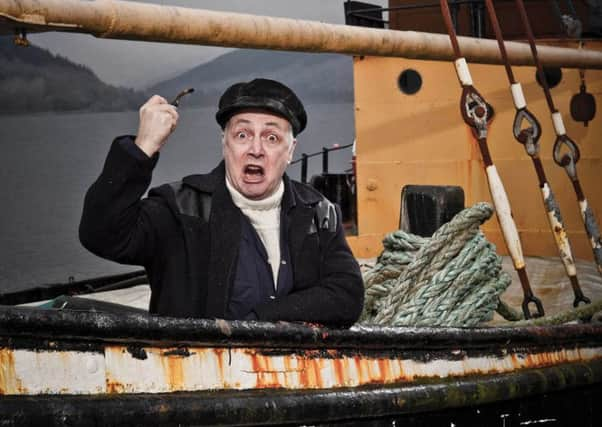Enjoy ‘Para Handy’ nautical high jinks at the town hall


This summer, three actors and an accordionist will bring new life to Neil Munro’s classic Para Handy comedy tales in a 1950s Radio Broadcast style, on stage at the recently refurbished venue.
Sandy Marshall, Chair of EDLC Trust, said, “ Audiences are invited to join the well-loved characters of Master Mariner, Dougie, MacPhail and Sunny Jim and others as they take to the airwaves, in a nostalgic homage to the Clyde Puffer and her captain.
“This walk down memory lane is sure to raise a smile.”
Advertisement
Hide AdAdvertisement
Hide AdCouncillor Billy Hendry, Convener of the Place, Neighbourhood and Corporate Assets Committee, added: “As Scotland’s Canal Capital, Kirkintilloch is a fitting venue for this maritime themed production.
“We’re delighted to welcome this experienced and well-established company to the stage of our new-look hall.”
The production - adapted, directed by and starring Kevin Jannetts - will be at Kirkintilloch Town Hall on Saturday 27 July at 7pm and suitable for ages 16+
Bar refreshments will be available during the interval.
Tickets cost £12 and can be booked online (www.booking.edlc.co.uk/horizons/culture) or by calling 0141 777 3143 (Mon - Fri: 9am-1pm & 2-4pm).
Advertisement
Hide AdAdvertisement
Hide AdPara Handy, the anglicised Gaelic nickname of fictional Peter Macfarlane, is a character created by the journalist and writer Neil Munro.
His story was brought to life in a series of articles published in the Glasgow Evening News between 1905 and 1923 under the pen name of Hugh Foulis.
Para Handy is the crafty skipper of the Vital Spark, a Clyde puffer (steamboat) of the sort that delivered goods from Glasgow to Loch Fyne, the Hebrides, and the west coast highlands of Scotland in the early 20th century.
The stories partly focus on his pride in his ship, “the smertest boat in the tred” which he considers to be of a class with the Clyde steamers, but mainly tell of the “high jinks” the crew get up to on their travels. The stories are known for their evocation of a lost era in the life of these coastal communities when they depended completely on the water.